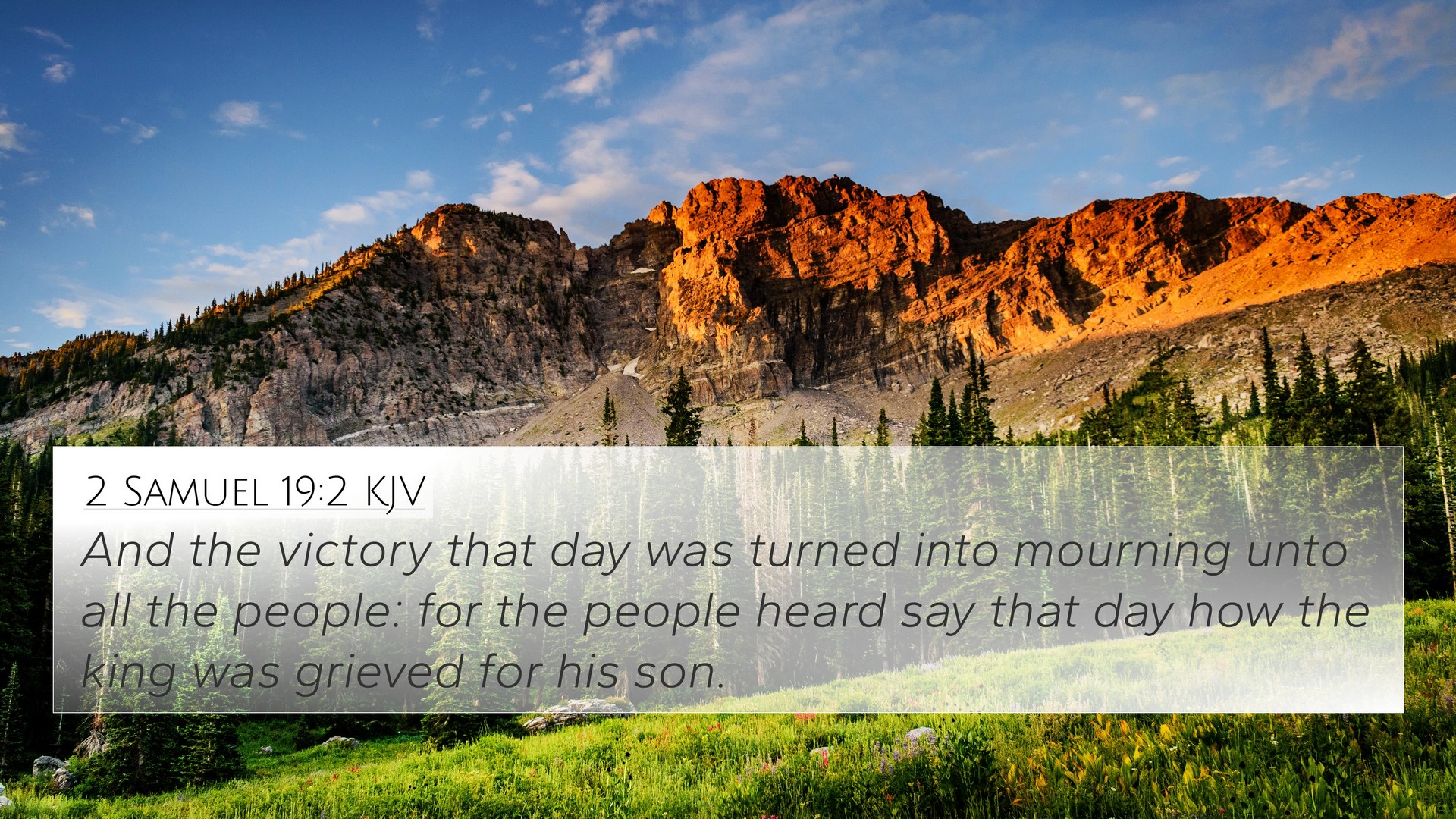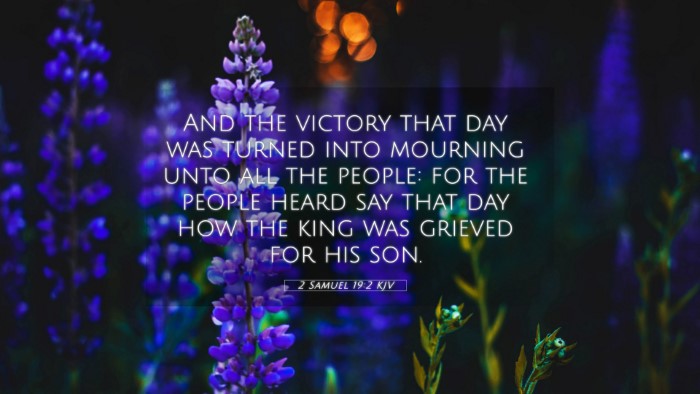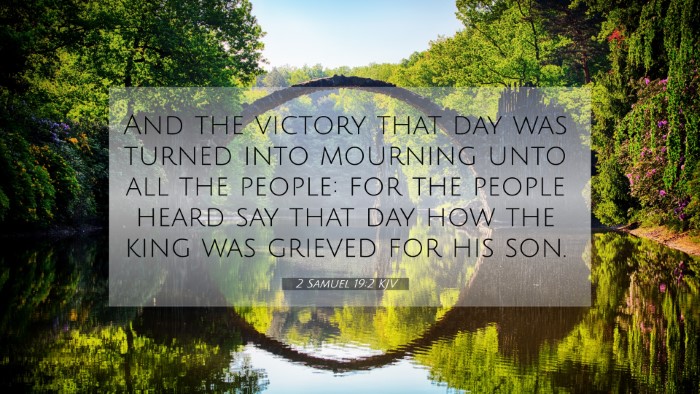Understanding 2 Samuel 19:2
Bible Verse: 2 Samuel 19:2 (ESV) - "And the victory that day was turned into mourning for all the people; for the people heard that day that the king was grieved for his son."
This verse captures a profound emotional response in the aftermath of victory, reflecting the complex nature of human emotions in the face of loss. It highlights how triumph can be overshadowed by grief, especially in the context of David mourning for his son Absalom.
Commentary Insights
Matthew Henry's Commentary
Matthew Henry emphasizes the duality of the situation—while the people had won a significant victory over Absalom's forces, their joy was dampened by King David's sorrow. This demonstrates how a leader's emotional state can greatly affect the morale of his followers. Furthermore, it serves as a reminder of the fragility of human emotions, where joy and sorrow coexist.
Albert Barnes' Notes
According to Albert Barnes, this verse signifies the public's awareness of David's suffering. The contrast between victory and mourning illustrates the human experience where personal loss often overshadows communal accomplishments. It highlights that victories in life can be bittersweet, especially when loved ones are lost or when one's actions result in regret.
Adam Clarke's Commentary
Adam Clarke points to the grief felt by David as a pivotal moment, showcasing the depths of a father’s love. He notes that this grief might have stemmed from David's recognition of his own failures that led to his son’s rebellion. Clarke draws attention to the importance of understanding the internal conflicts leaders face, particularly when it involves family and the ramifications of leadership decisions.
Key Themes and Cross-References
The themes in 2 Samuel 19:2 align with deep emotional and relational dynamics, often explored throughout the Scriptures. Here are some notable connections:
- 1 Samuel 15:35: Highlights God's regret over Saul, comparing divine and human grief.
- 2 Samuel 12:20: David’s grief following the death of his child illustrates the same theme of sorrow amidst external situations.
- Matthew 5:4: "Blessed are those who mourn, for they shall be comforted" speaks to the shared theme of sorrow in both personal and collective contexts.
- John 11:35: Jesus weeps upon hearing of Lazarus’s death, showcasing the compassionate response to grief.
- Romans 12:15: Encourages believers to rejoice with those who rejoice and weep with those who weep, encapsulating communal emotional responses.
- Ecclesiastes 3:4: "A time to weep, and a time to laugh," highlighting the balance of human experiences.
- Luke 19:41: Jesus weeping over Jerusalem reflects sorrow for those who have strayed, parallel to David’s grief for Absalom.
Applications and Lessons
2 Samuel 19:2 conveys several applications:
- Emotional Complexity: It reminds readers of the intricate nature of feelings—how victories can be tempered by grief.
- Leadership Responsibilities: Leaders carry not just victories but the weight of their actions, impacting their followers' emotions.
- Empathy and Connection: Encourages believers to understand and empathize with others' grief, especially in times of collective triumph or loss.
Conclusion
2 Samuel 19:2 serves as a powerful reminder of the intersection of victory and loss, illustrating that even in our greatest triumphs, the pain of personal grief can overshadow our joy. Through the insights provided by Matthew Henry, Albert Barnes, and Adam Clarke, it becomes apparent that Scripture often reflects the complicated tapestry of human emotion and divine circumstance.
Further Study Ideas
To deepen your understanding, consider the following:
- Explore cross-referenced themes throughout the Old and New Testaments relating to grief and leadership.
- Conduct a comparative Bible verse analysis focusing on David's lamenting and how it parallels with other biblical figures.
- Utilize tools for Bible cross-referencing to find related verses, enhancing your comprehension of biblical emotions.




